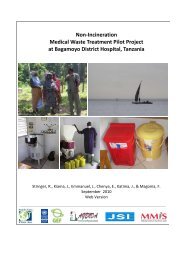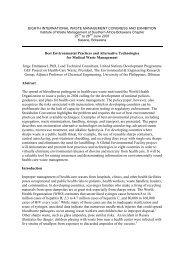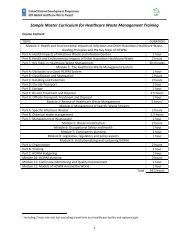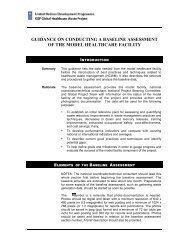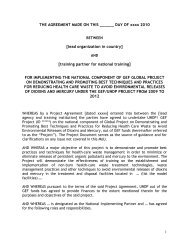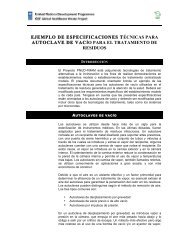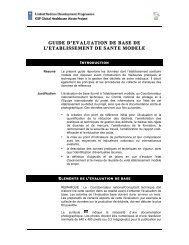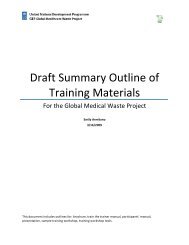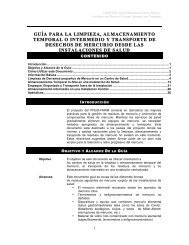Latvia
Latvia
Latvia
Create successful ePaper yourself
Turn your PDF publications into a flip-book with our unique Google optimized e-Paper software.
Health systems in transition<br />
<strong>Latvia</strong><br />
faces a financial incentive to retain the money that would otherwise be paid<br />
to a specialist. Patients fear that they may receive inadequate or inappropriate<br />
treatment in the event that their condition requires specialist knowledge and<br />
skills. Specialists themselves similarly oppose the arrangement as their position<br />
vis-à-vis the family practitioners is severely weakened. The incentive system for<br />
GPs is discussed in more detail in Section 3.7 Payment mechanisms, Subsection<br />
Paying health care personnel.<br />
From the point of view of patients, according to a major survey of the<br />
population (by the Tropical Disease Research Centre (CIET)), a change in the<br />
health care system that was most often cited involved the practice of family<br />
doctor referrals to specialists. More than half the respondents would be willing<br />
to pay higher patient fees in order to have easier access to specialized care.<br />
6.4 Specialized ambulatory care/inpatient care<br />
Secondary ambulatory care<br />
Secondary ambulatory care can be received at the institutions listed here (see<br />
also Figure 6.3).<br />
• Specialist physician practices; these consist of specialist doctors who work<br />
independently either as self-employed individuals or as private sector agents.<br />
The institutional legal forms here are exactly as in the case of GP practices<br />
(discussed earlier), where a self-employed practitioner pays income taxes on<br />
the basis of income earned in the practice, while the premises and equipment<br />
of the practice are either privately owned or rented. Most specialists run<br />
independent practices in rented facilities of former polyclinics owned by<br />
local governments. Limited companies come under the category of “private”<br />
and are taxed as such.<br />
• Hospitals; these may be owned by the central Government under the<br />
jurisdiction of the Ministry of Health, or owned by local governments, or<br />
they may be private.<br />
• State agencies (such as the State Centre for Mental Health, Tuberculosis<br />
and Lung Diseases Centre, Centre for Infectious Diseases, etc.) come under<br />
the Ministry of Health.<br />
• Diagnostic services fall under the ownership of the central Government or<br />
local governments, or they may be privately owned.<br />
• Health centres may be public (owned by local governments) or private, or<br />
operate under a public–private ownership mix.<br />
183





